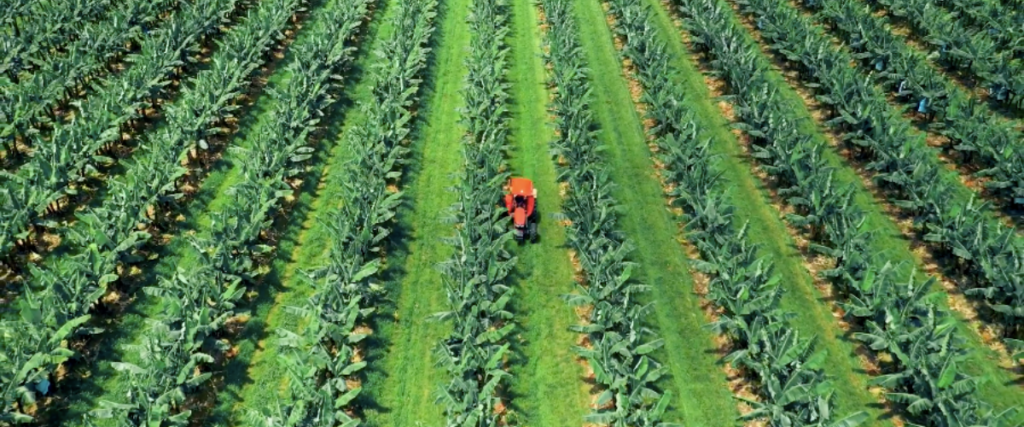Hitachi assists Australian banana farm with digitising production and distribution process through IoT and AI-powered smart farm technology.
With the aid of Japanese tech company Hitachi’s US IT unit, an Australian banana farm, Bartle Frere Bananas in Queensland, is digitising its entire production and distribution process. The farm will employ technologies such as the Internet of Things (IoT) and Artificial Intelligence (AI) to increase efficiency and yield, creating a “Smart Farm” solution.
Farm owner and managing director, Gavin Devaney, believes that sustainable farming requires data-driven transparency and actionable insight. Digital transformation is essential for food producers because digitisation, such as machine learning and automation, is fundamental for pushing growth and improving operations for businesses across all industries.
Bartle Frere Bananas will use AI that analyses irrigation data collected from weather monitoring stations and soil moisture sensors to control moisture levels per section of land, controlling how much and when to supply water. In the future, Hitachi foresees the development of an entirely AI-based irrigation system as a Smart Farm solution.
IoT technology will control fertilisation via solar-powered sensors on drain pumps that monitor how much fertiliser is being dumped into the river, so as to lower runoff and curb the negative environmental impact of the farm. In addition, there will be a system to determine when the bananas are ready to be harvested.
Radio frequency identification (RFID) will act as a supply-chain tracking system through tags attached to each tree, as well as pallets, which will track the fruit-to-market process, using radio waves to transmit information. A separate tracking system will use GPS and temperature sensors to maintain the bananas’ optimal ripeness for the transport process.
Hitachi is focused on the global agricultural-technology market, considering the maintained growth of the world’s population, driven by developing countries. As a result, food demand will keep rising in the coming future, meaning the importance of improving efficiency in technology-intensive agriculture cannot be underestimated.
According to the Japanese agriculture ministry’s Policy Research Institute, global production of wheat is currently exceeding that of consumption by around 800 tonnes. However, a shortage of 700 thousand tonnes is predicted by 2030. Though dire, this demonstrates the market potential for smart agriculture solutions via digital transformation, valued at US$41.1 billion by 2027 – a 450% increase compared to 2019, according to market research firm, Global Information.
Considering the growth prospects, startups are rapidly flooding the AgriTech market, receiving up to US$30.5 billion in investments, said AgFunder, a venture capital provider.
Hitachi is looking to capitalise on this market necessity by offering its Lumada IoT platform services, such as data analysis using AI, and more. The tech giant plans to offer Lumada not just in the agriculture industry but also other sectors, with a prediction of reaching JP¥1.58 trillion this fiscal year through sales alone, up 42% since 2020.
Featured banner image credit: hitachivantara.com
Related Articles
Your Guide to AgriTech in Australia
Artificial Intelligence, Nanotechnology, and Other Top Tech Growth Sectors to Quadruple by 2025





